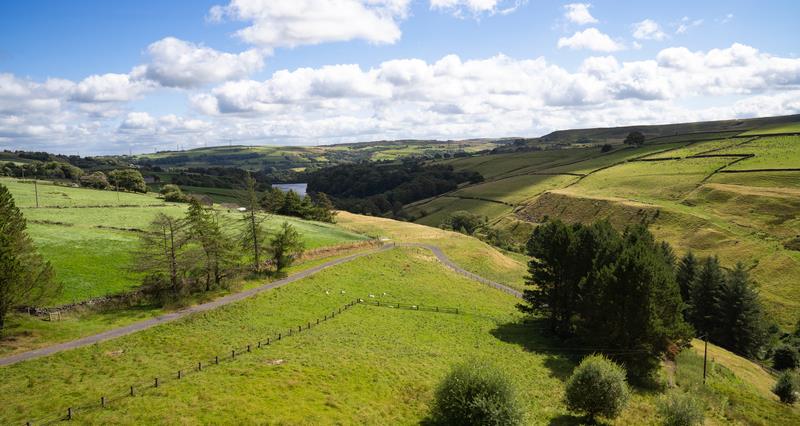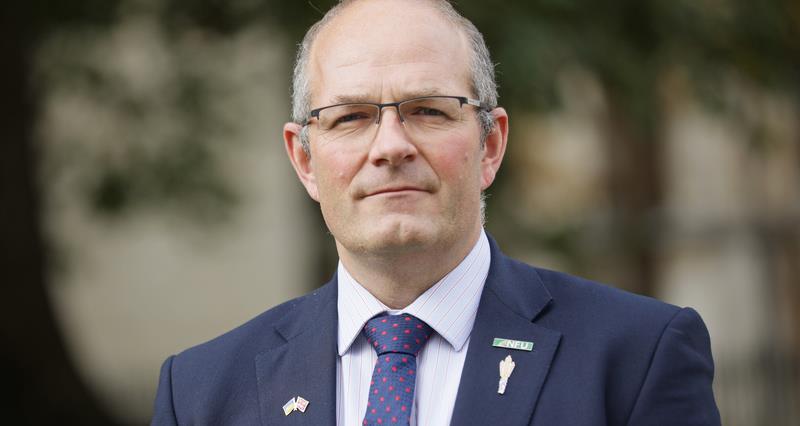The news comes as Defra delivered another hammer blow to farmers through the precipitous closure of SFI applications on Tuesday 11 March.
The farmer confidence survey of more than 900 member businesses scanned horizons across all major UK farming sectors. The results reveal that:
- 85% of landowners believe the reforms to APR and BPR (Agricultural Property Relief and Business Property Relief) will increase their IHT (inheritance tax) liability. Of these, 32% say they plan to reduce investment to mitigate this increase тАУ this figure increases to 42% for mixed arable and livestock businesses, and 49% for arable farms.┬а
- 88% of respondents said the phasing out of direct payments would negatively impact their business.
- 76% of employers expect to be impacted by the increase in employers' National Insurance contributions. Because of this increase, 65% said they expect a reduction in profits and 43% expect to reduce investment to offset these additional costs.
The picture across the sectors
The former government received deep criticism when last yearтАЩs results were revealed. TodayтАЩs results saw short-term (one-year) confidence fall from -25 last year to -35 this time around, on a scale of -100 to +100, mid-term confidence (three year) has dropped even lower from -22 to -38.
If the survey were taken again today, itтАЩs expected this would drop even further after DefraтАЩs sudden announcement slammed the door shut for thousands of farmers who were planning to access the SFI scheme.
тАЬIтАЩm realising there is no such thing as rock bottom as far as Defra is concerned.тАЭ
NFU President Tom Bradshaw
Survey respondents in mixed arable and livestock (-44 short term, -43 medium), arable (-53 in both the short and medium term), beef and/or sheep (-36 short term, -41 medium) all painted bleak pictures, with dairy at -21 (short term) and -24 (medium). Horticulture and potatoes showed a slight improvement, from -16 short term, -22 medium last year, to -6 short term and -4 medium term this year.
Poultry egg producers bucked the trend with confidence tallies of +21 in the short term and +15 in the medium, and a slight improvement for poultry meat producers although they still remained in the negative at -3 for both the medium and the short term.
Farmers left in the lurch
NFU President Tom Bradshaw said: тАЬWhen our Confidence Survey results came out last year, we thought weтАЩd hit rock bottom.
тАЬWhen we were initially looking to release our survey results today, we knew weтАЩd hit a new all-time low. Now, with another hammer blow dealt to the farming sector without warning last night, IтАЩm realising there is no such thing as rock bottom as far as Defra is concerned.
тАЬWhere is the transparency? Where is the accountability?
тАЬLast year Defra closed applications for Capital Grants, grants that are used for important environmental work such as tree planting, buying equipment to improve air and water quality, or habitat restoration, with no notice, leaving farm businesses in the lurch.
тАЬLast year, this government promised us they wouldnтАЩt introduce a tax on family farms upon death, but they did, leaving many farming families without hope for the future. And now they are taking away direct payments тАУ faster than they originally promised тАУ leaving farmers with no alternative scheme to plug the financial hole they find themselves with.тАЭ
The phasing out of direct payments (88%), rising input prices (85%) and government regulation and legislation (84%) topped the factors farmers said would negatively affect their farm business.
At the time of surveying over half of the respondents said they would engage with ELMs to mitigate the phase out of direct payments, with 34% saying they would look to diversify into non-farming activities.
No confidence in the government
Farmers are facing multiple challenges from an ongoing cashflow crisis and a bombshell Budget last October which announced the family farm tax тАУ again unexpected тАУ to an increase in employers' National Insurance Contributions, and the acceleration of the direct payments phaseout.
Each of these another huge kick in the teeth, given the replacement scheme is now unavailable to so many farm businesses.
тАЬIf government wants to re-build confidence, work with us, not against us.тАЭ
NFU President Tom Bradshaw
Tom added: тАЬNo business can be expected to plan, invest, grow and increase its economic contribution, while hitting government environmental targets, when it is being slammed time and time again by policies which strip away its profitability.
тАЬBusiness confidence was already low. Now we are in situation where the farming community has no confidence in the government.тАЭ
Investment intentions on the decline
A government strategy to avoid being undercut by imports produced at lower standards, an increase in output prices and reductions in input price inflation were the biggest potential drivers for future investment, respondents reported.
The data showed a continuing crisis in investment intentions with machinery showing the sharpest decline, from -39 for 2023/24 to -61 for 2024/25
The second successive big decline in intended investment was for land, dropping from -15 last year to -32 this year.
Whereas last yearтАЩs results showed appetite to invest in renewable energy, energy efficiency and diversifications, these categories have now all fallen into negative figures. The SFI news will only exacerbate cashflow issues and farmersтАЩ capability to invest.
In its newly launched Blueprints for Growth, the NFU has provided solutions that, if adopted, would help reverse this collapse in farmer confidence and enable much-needed investment in the future of British food and farming.
NFU President Tom Bradshaw added: тАЬAs I told delegates at NFU Conference just a few weeks ago, the focus remains steadfast on providing solutions for our industry. These Blueprints set out a detailed vision of whatтАЩs needed to underpin sustainable, profitable farm businesses, while producing food for 70 million people and protecting and improving the great British countryside.
тАЬIf government wants to re-build confidence, work with us, not against us. We are ready and waiting to help set a new brighter course for the UK farming sector.тАЭ



